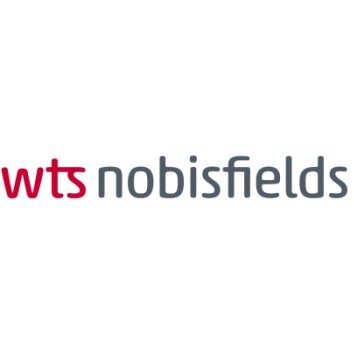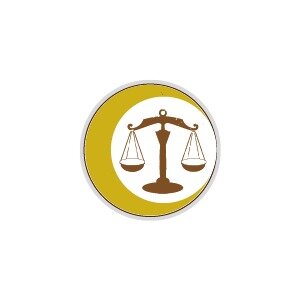Best Project Finance Lawyers in Kumasi
Share your needs with us, get contacted by law firms.
Free. Takes 2 min.
List of the best lawyers in Kumasi, Ghana
About Project Finance Law in Kumasi, Ghana
Project finance is a specialized area of legal and financial practice, particularly important for businesses and individuals involved in large-scale infrastructure and development projects. In Kumasi, Ghana, project finance law provides the framework for structuring, negotiating, and managing long-term investments in sectors such as energy, transportation, telecommunications, housing, and public infrastructure. The process typically involves securing funding for a specific project where repayment relies on the project's revenues. Legal professionals in Kumasi play a crucial role in ensuring that such ventures comply with both local and international financial regulations while safeguarding the interests of all stakeholders.
Why You May Need a Lawyer
Securing project finance often requires navigating complex legal issues and multiple stakeholder interests. Common situations where legal help is essential include:
- Structuring and negotiating financing agreements with banks, investors, or consortiums.
- Drafting and reviewing contracts, including concession agreements, loan agreements, and joint venture arrangements.
- Ensuring regulatory compliance with Ghanaian laws and any applicable international regulations.
- Conducting due diligence to uncover potential risks or legal issues with land, permits, or intellectual property.
- Assisting with dispute resolution or litigation related to delays, defaults, or breaches in project contracts.
- Advising on tax implications, guarantees, and insurance requirements for large-scale projects.
A qualified lawyer can help prevent costly mistakes, streamline negotiations, and protect your investment throughout the life of your project.
Local Laws Overview
Project finance in Kumasi, Ghana is governed by a combination of local statutes, regulations, and international best practices. Some key areas include:
- Companies Act, 2019 (Act 992): Regulates the formation, operation, and insolvency of companies, including special purpose vehicles (SPVs) often used in project finance.
- Securities Industry Act, 2016 (Act 929): Governs the issuance of securities and public fundraising in connection with project finance.
- Public-Private Partnership (PPP) Framework: The National Policy on PPP provides guidelines for private participation in public infrastructure projects.
- Land and Conveyancing Law: Securing land rights is crucial for most projects, requiring thorough adherence to local land laws and procedures.
- Environmental Protection: Projects must comply with the Environmental Protection Agency (EPA) requirements, including environmental impact assessments.
- Taxation Laws: The Ghana Revenue Authority regulates corporate tax, withholding tax, and VAT implications for project finance transactions.
Understanding these laws and regulations is essential for structuring a project that is both legally compliant and financially viable.
Frequently Asked Questions
What is project finance?
Project finance is a method of funding in which the project's cash flow and assets, rather than the sponsor's balance sheet, are used as collateral for loans and investment.
Who are the primary participants in a project finance transaction?
The main participants include project sponsors, lenders (often banks or international financial institutions), contractors, the government, regulators, and off-takers or end-users.
What types of projects are eligible for project finance in Kumasi?
Typical projects include those in sectors such as energy (power plants), transportation (roads, railways), water, telecoms, real estate, and public infrastructure.
What is a Special Purpose Vehicle (SPV)?
An SPV is a legally separate entity created solely for the purpose of executing a single project, thereby isolating the financial risk from the sponsors' other business activities.
How do I secure financing for a project in Kumasi?
You must present a viable business plan, identify potential sources of finance, undertake due diligence, and negotiate terms with financial institutions or investors, usually with legal guidance.
Why do lenders require security or collateral in project finance?
Lenders seek to reduce their risk by securing claims on project assets or future revenues in case the project fails to perform as anticipated.
What licenses or permits are needed for project finance in Kumasi?
Depending on the project, you may require business registration, land permits, sector-specific licenses, and environmental approvals.
What are some common challenges faced in project finance?
Common issues include regulatory delays, land acquisition problems, political or economic instability, unforeseen environmental impacts, and financing shortfalls.
How does public-private partnership (PPP) work in Project Finance?
Under PPPs, the government and private sector share risks, responsibilities, and rewards in delivering public infrastructure, often under long-term contracts.
When should I consult a project finance lawyer in Kumasi?
It is essential to consult a lawyer at the earliest planning stages to ensure proper structuring, compliance, and risk mitigation throughout your project.
Additional Resources
If you need further guidance or support, the following entities may be helpful:
- Ghana Investment Promotion Centre (GIPC) - For investment facilitation and regulations.
- Environmental Protection Agency (EPA) - For environmental regulations and permits.
- Ministry of Finance - For public-private partnership policy frameworks.
- Ghana Revenue Authority (GRA) - For tax laws and compliance.
- Registrar General’s Department - For business registration and SPV incorporation.
- Bank of Ghana - For foreign exchange controls and financial sector regulations.
- Kumasi Metropolitan Assembly - For local permits and development approvals.
Next Steps
If you are considering project finance in Kumasi, Ghana, the following steps are advisable:
- Assess the scope and needs of your project.
- Engage a qualified legal professional with expertise in project finance to review your plans and advise on structuring your transactions.
- Compile all necessary documents, including business plans, feasibility studies, and preliminary contracts.
- Reach out to relevant regulatory bodies to determine licensing, permitting, and compliance requirements specific to your project type.
- Consider both local and international finance options, and be prepared for detailed due diligence processes.
- Prioritize open communication among all project stakeholders, supported by sound legal agreements.
Taking these steps, with strong legal guidance, will help you navigate the complexities of project finance in Kumasi and position your venture for success.
Lawzana helps you find the best lawyers and law firms in Kumasi through a curated and pre-screened list of qualified legal professionals. Our platform offers rankings and detailed profiles of attorneys and law firms, allowing you to compare based on practice areas, including Project Finance, experience, and client feedback.
Each profile includes a description of the firm's areas of practice, client reviews, team members and partners, year of establishment, spoken languages, office locations, contact information, social media presence, and any published articles or resources. Most firms on our platform speak English and are experienced in both local and international legal matters.
Get a quote from top-rated law firms in Kumasi, Ghana — quickly, securely, and without unnecessary hassle.
Disclaimer:
The information provided on this page is for general informational purposes only and does not constitute legal advice. While we strive to ensure the accuracy and relevance of the content, legal information may change over time, and interpretations of the law can vary. You should always consult with a qualified legal professional for advice specific to your situation.
We disclaim all liability for actions taken or not taken based on the content of this page. If you believe any information is incorrect or outdated, please contact us, and we will review and update it where appropriate.










